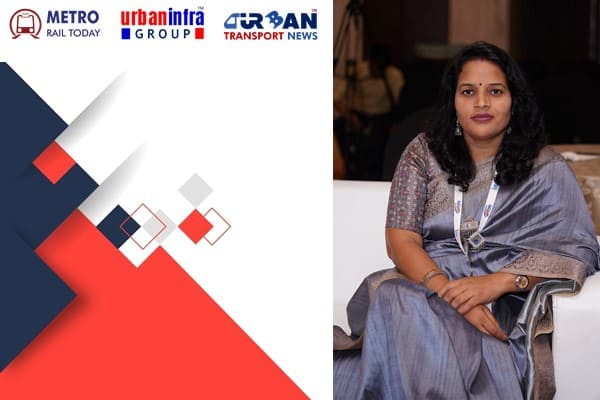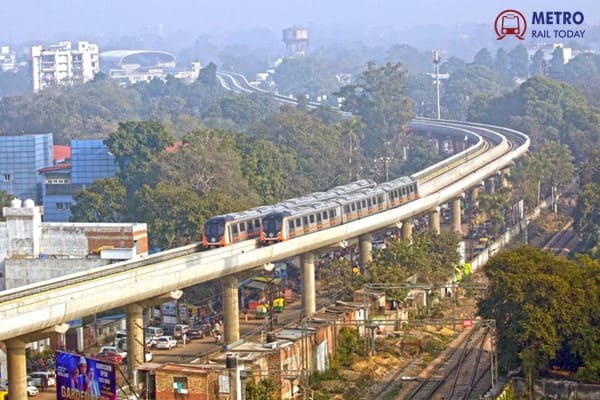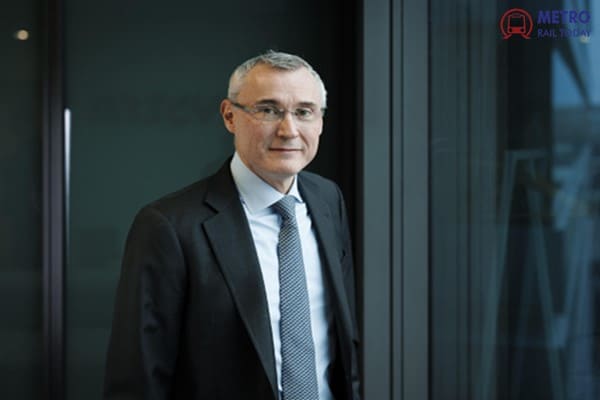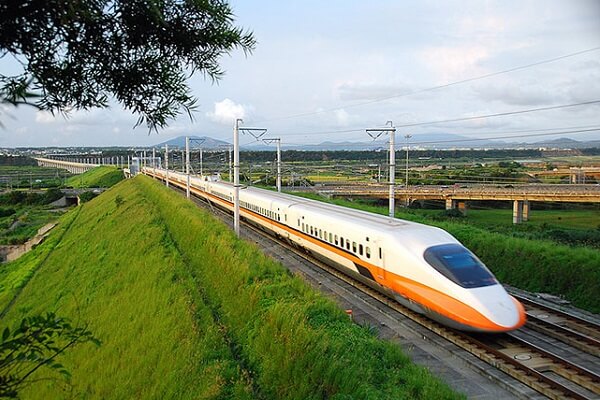 Railway Ministry directs NHSRCL to prepare revised DPR for Delhi–Varanasi High Speed Rail Corridor
Railway Ministry directs NHSRCL to prepare revised DPR for Delhi–Varanasi High Speed Rail Corridor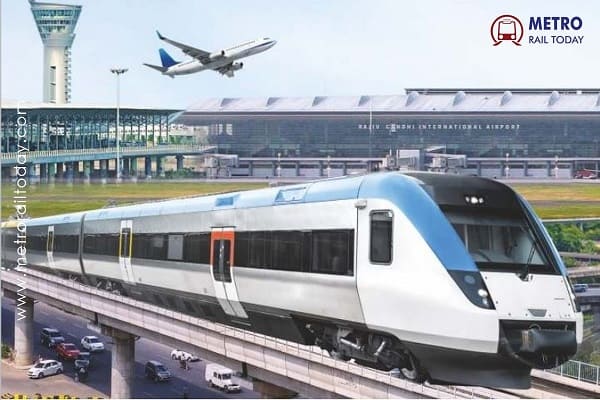 Maharashtra approves ₹22,862 Crore Mumbai Metro Line 8 connecting Mumbai and Navi Mumbai Airports
Maharashtra approves ₹22,862 Crore Mumbai Metro Line 8 connecting Mumbai and Navi Mumbai Airports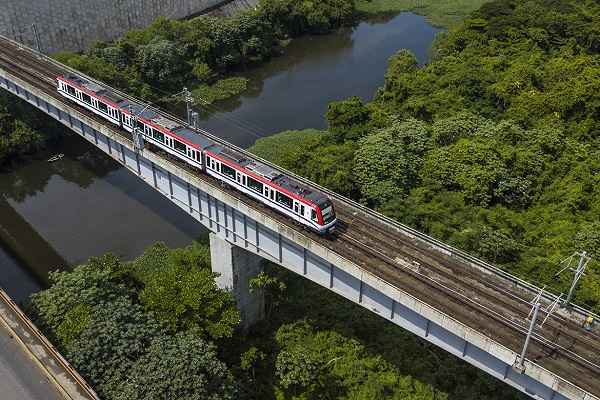 Israel's NTA hosts Global Contractors’ Conference for $50 Billion Tel Aviv Metro Project
Israel's NTA hosts Global Contractors’ Conference for $50 Billion Tel Aviv Metro Project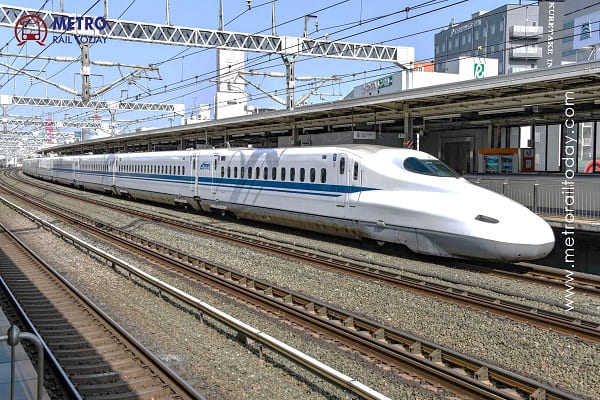 Metro Man E. Sreedharan Unveils ₹54,000 Crore Kerala High-Speed Railway Corridor
Metro Man E. Sreedharan Unveils ₹54,000 Crore Kerala High-Speed Railway Corridor GMRL submits loan proposal to the World Bank for Gurugram Metro Phase 2
GMRL submits loan proposal to the World Bank for Gurugram Metro Phase 2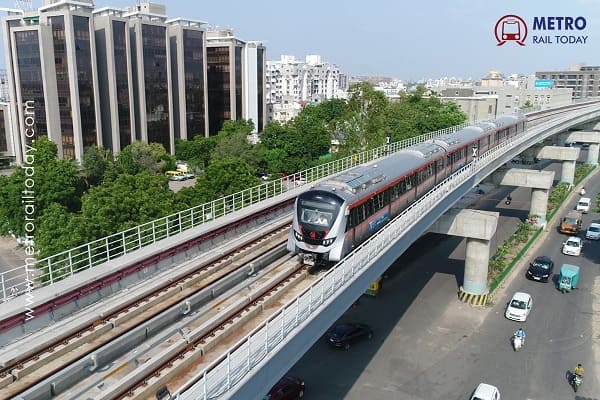 Govt of India approves ₹1,067.35 crore Ahmedabad Metro's GIFT City–Shahpur Metro Extension
Govt of India approves ₹1,067.35 crore Ahmedabad Metro's GIFT City–Shahpur Metro Extension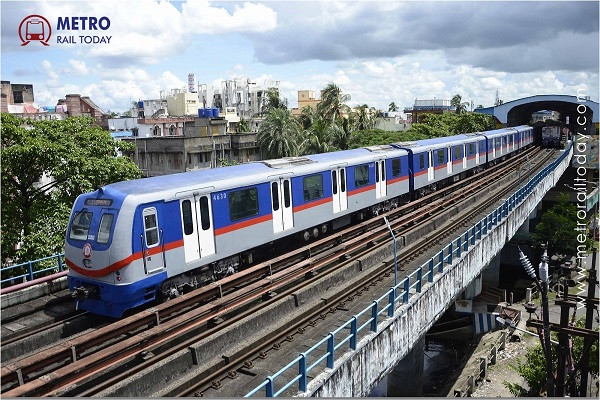 Metro Railway Kolkata floats ₹345.76 Crore Tender for Traction Substation Modernisation
Metro Railway Kolkata floats ₹345.76 Crore Tender for Traction Substation Modernisation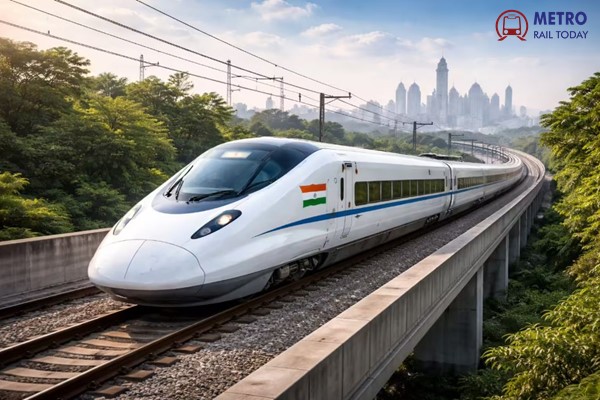 Telangana to allocate 500 Acres land near Shamshabad Airport for proposed High-Speed Rail Hub
Telangana to allocate 500 Acres land near Shamshabad Airport for proposed High-Speed Rail Hub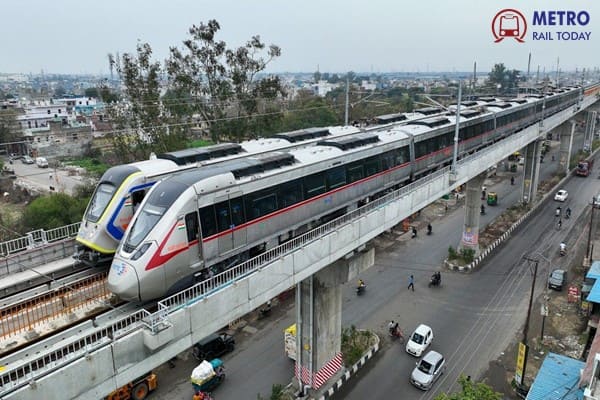 NCRTC launches Meerut Metro and final section of Delhi-Meerut Namo Bharat RRTS Corridor
NCRTC launches Meerut Metro and final section of Delhi-Meerut Namo Bharat RRTS Corridor Delhi Metro to expand the use of advanced AI technologies to enhance Operations and Passenger Safety
Delhi Metro to expand the use of advanced AI technologies to enhance Operations and Passenger Safety
Interview with Ana Maria Castillo Serna, Capital Commercial Director (SR), Network Rail
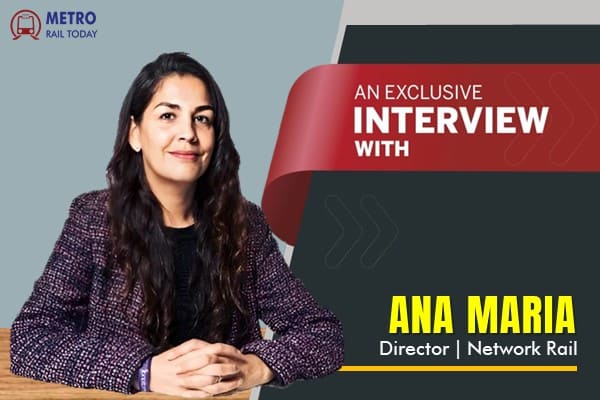
Ana Maria Castillo Serna is a seasoned professional with over 16 years of experience in leadership, negotiation, and supply chain management within the rail transport industry. Currently serving as the Commercial Director - Capital Delivery at Network Rail, Ana Maria demonstrates expertise in stakeholder engagement, category management, and contract negotiation.
Throughout her career, she has held various strategic roles, including Head of Category Management & Supply Chain, where she spearheaded regional supply chain management and developed effective category strategies. Ana Maria's leadership extends beyond procurement; she excels in team development and program management, ensuring the professional growth of her commercial teams.
With a solid educational background, including a Bachelor Degree in Business Administration and Management from Universidad EAFIT and a Postgraduate Diploma in Marketing from CIM, Ana Maria blends theoretical knowledge with practical expertise. She is also a member of CIPS, showcasing her commitment to continuous professional development in procurement and supply chain management. Ana Maria's diverse experience, combined with her analytical skills and collaborative approach, positions her as a valuable asset in driving efficiency, optimizing value for money, and fostering sustainable business relationships within the rail industry.
Network Rail, the backbone of Britain’s railway infrastructure, operates and manages the vast majority of the nation’s rail tracks, signalling systems and stations, playing an instrumental role in ensuring the efficiency and safety of the UK’s rail network.
On top of this mammoth task, Network Rail pushes each day to engage employees around the importance of diversity, equity and inclusion (DE&I) across major programmes, with six employee networks in place to drive fast and effective change in this space. Ana María Castillo Serna, Capital Commercial Director for Southern Region at Network Rail, plays a key role in this arena in her role as the capital projects supply chain lead.
Ms. Charlene Singh spoke to Ms. Ana Maria Castillo Serna, who was shortlisted as an Inspirational Woman of the Year in the Women in Rail Awards in 2022, as she reflected on the great work she has been doing as an advocate for DE&I across major programmes.
You were nominated as Inspirational Woman of the Year in 2022 by the Women in Rail Awards. In what ways are you inspirational?
As the leader of a large regional supply chain, I do my best to raise awareness of the many challenges we face today in the rail and construction industries. I am known for sharing these openly with our supply chain partners, while inviting them to reflect and act upon the implementation of the demonstrable improvements we want to see in our industry.
A platform I have used to promote the importance of addressing our DE&I challenges is public speaking. Last year alone, I was honoured to be invited to deliver keynote speeches at a number of major rail industry events.
There was a particular event attended by a small group of young graduates and more than 400 senior leaders; the make-up of attendees provided me with a brilliant opportunity to evidence the huge amount of work needed to make any substantial impact in this space. It also highlighted the need for us to rethink the industry’s attitudes to DE&I in the workplace.
We talked about ‘superpowers’, namely, the superpower of fully embracing being different, which is at the heart of my philosophy for DE&I. I spoke about my superpower – being different. I am a Colombian woman with Hispanic heritage living in the UK and working in the rail industry as a leader, yet my unique superpower and self-belief have driven me to aim higher, be determined and more ambitious, rather than hold me back.
In terms of inspiring others and the next generation, I am tremendously passionate about the role mentoring can play in driving change. On average, I mentor five or six people at any one time, which is a lot when you have a packed diary – but I see my time as a mentor as a valuable investment in our immediate future. The multiplying factor here comes as I like to encourage my teams and mentees to do the same, with the aim of sharing our knowledge and experiences so that many more are aware of the opportunities in our industry.
What is your role at Network Rail?
As the Capital Commercial Director, I am responsible for delivering capital works in the Southern region to the value of £1bn a year, which has more than 70 major contractors as well as small and medium enterprises working across it.
A typical day for me involves meeting with stakeholders and contractors and managing my teams, all while keeping on top of the many commercial, procurement and capital projects we have on the go. We mainly procure and commercially manage construction works, but also services such as design consultants, project management, commercial management, engineering services and goods, to name a few.
What has motivated you to stay at Network Rail for 16 years?
Network Rail plays a key role in society and that is what drives me. It is a job with real purpose – moving Britain, helping people and goods get from A to B. I find that very fulfilling. Network Rail has about 45,000 direct employees in total and our infrastructure and projects touch most communities in England, Scotland and Wales.
My journey started when I joined as a Commercial Manager in 2008. I have to admit, that I did not know much about the rail industry, but I knew Network Rail was a good employer and that there were many possibilities within it. That is what caught my attention. Since then, I have grown and progressed consistently, always identifying opportunities for professional development and increased job satisfaction that have kept me engaged and invested in the organisation.
What has contributed to your success as a leader at Network Rail?
It all stems from my experiences growing up. I grew up in a loving household; my mother was a single mum, with her and her sisters bringing me up. So, female strength, determination, dedication, passion and care for what I do have always been powerful forces in my life.
However, one thing I believed would hold me back in my ambitions growing up was my inability to speak English. So, as soon as I finished university, I knew I could not let this become a problem. I threw myself in at the deep-end and came to the UK to learn the language while travelling in Europe. I never planned to stay in the UK, but life had clearly different plans for me and I can now say that I am a proud British citizen.
Living here means I am part of the Hispanic ‘micro minority’ in the UK; another fact that I refuse to hold me back, and one that has always given me the strength needed to believe I can achieve anything I put my mind to because I know I have so much to offer and bring a unique and valuable perspective to my environment. In addition, I have been blessed with having colleagues, managers and leaders who have inspired me and helped me achieve my professional objectives and I genuinely think we all need that kind of support and encouragement.
What is Network Rail’s record around DE&I?
I think Network Rail is leading the way in the UK railway industry. The organisation has set ambitious targets and the leadership is supporting the momentum by speaking openly about the challenges, aims, failures and successes. Over the last few years, Network Rail has adopted a number of best practices in recruitment like the introduction of blind CVs, diverse interview panels, targeted recruitment campaigns and more.
However, despite some progress, only 17 percent of the current workforce in our region is female, 15 percent are from Black and Asian minority groups, six percent are from the LGBTQ+ community and five percent are living with disabilities.
Furthermore, a recent report identified that, while in 2023, 22 percent of our new recruits were from minority groups (as a result of a targeted campaigns), the percentage of staff turnover in the same year amounted to 19 percent from the same minority groups.
So, it is clear that we need to be doing more to ensure the onboarding, retention and progression of our people from minority groups is successful and here is where investing in equity and inclusion makes a real difference. We must continue training our managers and staff, ensuring opportunities are accessible to all and that everyone in the industry can act as a champion or an ally.
How important are Network Rail’s six employee networks when it comes to moving the EDI agenda forward?
These networks are at the heart of our organisation. Ran by passionate, engaged employees, they give our business the critical intelligence it needs to underpin our strategies. The most important thing about these networks is that they are recognised as invaluable to the organisation and have forged close relationships with our executive leadership team, giving them the support and voice needed to implement changes at the most senior levels of the organisation.
For instance, our CEO regularly attends some of the network meetings, and our CFO is the leader of our multi-faith network. Other networks focus on gender equity; BAME employee; LGBT+ employee, disability employee and carers employee network.
However, I do think large organisations like ours rely too heavily on employee goodwill to manage such vital inputs. I wish every business could invest in these types of networks and appoint dedicated employees to carry out their network duties on a fulltime basis, rather than having these viewed as an add-on to the job.
What prevents DE&I initiatives from shining through across major programmes?
One blocker that constantly comes up when looking to recruit diverse talent in the industry is the so-believed ‘unique’ requirements around experience in the railway. Those from diverse backgrounds may have struggled to access these opportunities in the past, leaving them unable to obtain the expected level of experience.
Not long ago, in an event with some of the larger contractors, we were discussing the urgency to meet our DE&I targets. However, I was saddened to hear excuses citing just how long it took the industry to embed the safety culture – around 30 years. We simply do not have 30 years for this. 30 years is a generation and we do not have that kind of time anymore.
An alternative to the above, which some may consider too much of a risk, would be having our recruitment process focus a bit more on attitude and not aptitude, before ensuring that, from day one, we provide new recruits and managers with the support they need to succeed to build long term, desirable careers in our industry.
A specific area that needs imminent attention is in the upper levels of middle management, as it seems to me that we are addressing DE&I more successfully at the highest and most junior levels of the industry, but not in the senior tiers of middle management. We need to find a solution for this as not doing so could put progress back by about five to ten years.
What actions need to be taken in the immediate term to help with this?
Regular listening exercises should be conducted to ensure our understanding remains fresh; our understanding of the different needs of our customers (passenger and freight), our current and potential employees, our funders, our projects and programmes. Through these exercises, we can obtain first-hand information to support DE&I strategies and, simply put, give ourselves the intelligence required to decisively attract and retain the diverse talent needed to deliver projects in the 21st century.
Furthermore, we must create a working environment where everyone can thrive, be their whole selves, feel safe and enjoy a sense of belonging that is palpable and unquestionable.
In addition, having the appropriate resources and budgets to achieve DE&I targets will be key as real change requires resourcing and investment. This investment, coupled with expert advice driving policy from employee networks, is so crucial.
The talented young people coming into the labour market today – talent our industries desperately need – are not interested in working for organisations that are not inclusive or do not reflect their communities. They want to be respected and valued for who they are. They want to look at the role models that inspire them and join organisations that provide support and work to obtain equity.
(Credit: Turner & Townsend)





